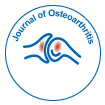Opinion Article Open Access
Australian Orthopaedic Surgeons are Satisfied with their Jobs
Sunil H Shetty1, Amit Dhond1 and Manit Arora1,2*1Dr. D. Y. Patil Hospital and Research Centre, Navi Mumbai, India
2St. George Clinical School. University of New South Wales, Australia
- *Corresponding Author:
- Manit Arora
Dr. D. Y. Patil Hospital and Research Centre
Navi Mumbai, India; St. George Clinical School
University of New South Wales, Australia
E-mail: manit_arora@hotmail.com
Received date: January 01, 2016; Accepted date: January 25, 2016; Published date: January 27, 2016
Citation: Shetty HS, Dhond A , Arora M(2016) Australian Orthopaedic Surgeons are Satisfied with their Jobs. J Ost Arth 1:105. doi: 10.4172/joas.1000105
Copyright: © 2016 Shetty et al. This is an open-access article distributed under the terms of the Creative Commons Attribution License, which permits unrestricted use, distribution, and reproduction in any medium, provided the original author and source are credited.
Visit for more related articles at Journal of Osteoarthritis
Abstract
In Danish diarrheic stool samples, the emerging enteric pathogen Campylobacter concisus has an incidence at the level of Campylobacter jejuni. Nevertheless, C. concisus has been neglected in many clinical laboratories due to labour intensive isolation procedures as well as time-consuming PCR-based methods for identification. Fourteen isolates of C. concisus were characterised in the MALDI-TOF mass spectrometer and analysed using the MALDI Biotyper and the ClinProTools 3.0 software. The data show that MALDI-TOF MS, as previously described for other Campylobacter species, can give a rapid identification of C. concisus. Interestingly, the isolates showed a remarkable diversity based upon their mass spectra when compared by visual and computational analysis.
Job Satisfaction of Australian Orthopaedic Surgeons
Job satisfaction has recently featured in many journals and in the media, as our society grows more astute of the psychosocial well-being of health care professionals. Job satisfaction is a dynamic concept based on cognition and affect – two linked domains of the human psyche. It has been traditionally described as “a pleasurable or positive emotional state resulting from the appraisal of one’s job or job experiences” [1]. Put simply, it is a description of how happy one is with their jobs.
So why is job satisfaction important? Physician satisfaction has been associated with patient satisfaction, with better physician health and well-being, reduced physician turnover and improved quality of health care provided. Conversely, dissatisfaction is associated with poorer physician health, inappropriate prescribing behaviours, lower levels of patient satisfaction and decreased patient compliance [2].
It seems that Western countries continue to have high job satisfaction for orthopaedic surgeons despite high burnout levels. In their nationwide study, Shanafelt et al found that career satisfaction was high among American orthopaedic surgeons (80%) [3]. In our study of Australian orthopaedic surgeons [2], we also found high career satisfaction, with nine in 10 orthopaedic surgeons being either very satisfied or moderately satisfied. All these results are in the backdrop of high levels of burnout, with one in two orthopaedic surgeons being burned out [4].
So what is causing the high satisfaction? Is it the income? Is it the lifestyle? Is it just the status of being an orthopaedic surgeon? There seems to be a multi-factorial answer with income, work hours, private practice and work-life balance being most important. This in turn leads to better health and less chance of leaving the profession.
Clearly, we are doing well. However, now, tackling the epidemic of burnout assumes even more importance for psychosocial well-being.
Acknowledgements
Prof. Ian A. Harris (South Western Clinical School, University of New South Wales, Sydney, Australia) and Dr. Ashish D. Diwan (St. George Clinical School, University of New South Wales, Sydney, Australia)
References
- Locke E (1976) The nature and causes of job satisfaction. In Handbook of industrial and organizational psychology, Chicago, Rand McNally, 1297-1349.
- ManitArora, AshishDharDiwan, Ian A Harris (2014). Orthopaedic surgeons are highly satisfied with their careers: results from a nationwide cross-sectional study. International Journal of Orthopaedics, 1(4).
- Tait D Shanafelt, Sonja Boone, Litjen Tan, Lotte N Dyrbye, Wayne Sotile, et al. (2012). Burnout and satisfaction with work-life balance among us physicians relative to the general us population. Archives of Internal Medicine 172: 1377-1385.
- Arora M, Diwan AD, Harris I A (2013) Burnout in orthopaedic surgeons: a review. ANZ Journal of Surgery, 83: 512-515.
Relevant Topics
Recommended Journals
Article Tools
Article Usage
- Total views: 9886
- [From(publication date):
January-2016 - Nov 09, 2024] - Breakdown by view type
- HTML page views : 9236
- PDF downloads : 650
